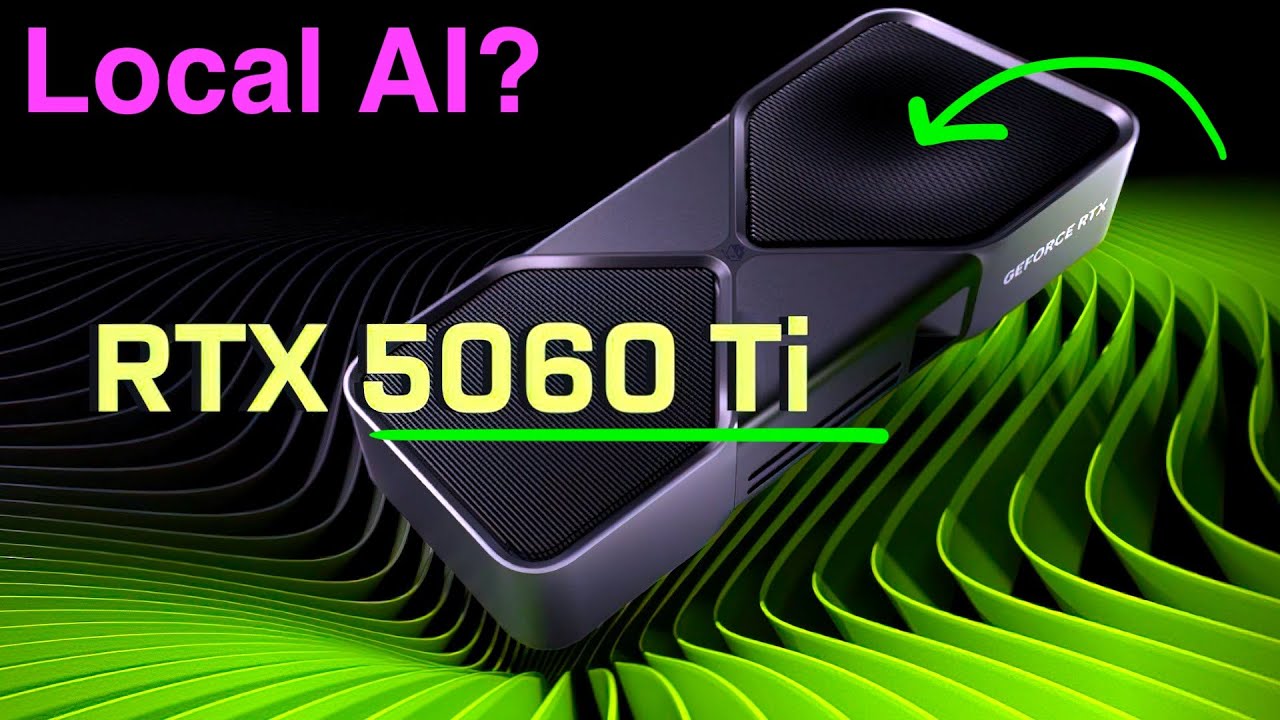The video evaluates the Nvidia GeForce RTX 5060 Ti, highlighting its potential for local AI and gaming, while comparing it to the 4060 Ti and discussing its performance and VRAM options. Ultimately, the host advises against purchasing the 5060 Ti for serious AI applications, recommending more powerful alternatives like the RTX 3090 or RTX 4070 instead.
In a recent video, the host discusses Nvidia’s release of the GeForce RTX 5060 family, specifically focusing on the RTX 5060 Ti and its potential applications for local AI and gaming. Positioned at the lower end of the 5000 series lineup, these GPUs are designed for lower resolution gaming. The host emphasizes the growing interest in local AI and how the lower-end Nvidia GPUs could be beneficial due to advancements in software that allows for efficient use of VRAM. The video aims to evaluate the value of the 5060 Ti compared to its predecessor, the 4060 Ti, and determine if it is a worthwhile investment for users interested in local AI.
The host highlights the pricing of the new GPUs, noting that the MSRP for the 5060 Ti is around $379, which is competitive compared to the current market prices for the 4060 series. However, the video stresses the importance of understanding the capabilities of these GPUs, particularly in terms of VRAM and performance. The 5060 Ti is available in both 8 GB and 16 GB versions, with the host strongly recommending the 16 GB variant for anyone considering local AI applications, as 8 GB is deemed insufficient for future needs.
When examining the hardware specifications, the host points out that the 5060 Ti shares similarities with the 4060 series, particularly in terms of tensor cores, which are crucial for AI tasks. The video discusses the GPU’s performance metrics, including AI tops, which measure the number of AI computations the GPU can handle per second. While the 5060 Ti is expected to outperform the 4060 Ti in theory, real-world benchmarks reveal only a modest performance increase of about 12% for generative AI tasks, which raises concerns about its value for local AI applications.
The host also compares memory bandwidth between the 4060 Ti and the 5060 Ti, noting that the latter has a significant increase in bandwidth, which is beneficial for AI workloads. Despite this improvement, the overall performance of the 5060 Ti in benchmarks is still lagging behind the RTX 4070, leading the host to question its practicality for serious AI users. The video suggests that while the 5060 Ti may be suitable for casual gaming and light AI tasks, it may not be the best choice for those looking to run more demanding local AI applications.
In conclusion, the host advises against purchasing the Nvidia 5060 Ti for local AI, recommending instead to consider options like the RTX 3090 with 24 GB of VRAM or the RTX 4070 if budget allows. The video emphasizes the importance of selecting the right GPU for specific use cases, particularly in the rapidly evolving field of local AI. The host encourages viewers to share their thoughts and alternative recommendations in the comments, fostering a discussion around the best GPU choices for AI and gaming.
